“My eyes are becoming progressively more nearsighted. How much are your contact lenses to slow down the progression?”
No other telephone question seems to tongue-tie receptionists and doctors alike, despite the fact that they deal with this question with nearly every patient who seeks their contact-lens services.
Perhaps one of the weakest links in an optometric practice is the failure to effectively manage a telephone contact-lens inquiry.
I recently conducted a telephone survey of some of the more successful practices in the U.S. and was astounded at their inability to convert my fee inquiry into an appointment.
Is Your Receptionist Ready to Field Questions?
Typically, a busy receptionist received my call. When I inquired about professional fees and the price of contact lenses, most receptionists could not adequately answer my questions. Many seemed to lack sufficient knowledge of contact lenses, contact lens prices and refund policies. Some receptionists were hurried and even annoyed at my inquires. Worse yet, they often obviously lacked motivation, enthusiasm and salesmanship skills.
The inadequacy of the receptionist is the primary reason that most optometry offices are unable to effectively appoint many of the daily fee inquiries. When you recognize and correct this inadequacy, your rewards will be immediate.
Psychology of Telephone Fee Inquiry
The intent of the inquirer, at least on the surface, is to gain information about fees and prices for contact lenses. The less obvious intent, but of greater significance, is the subconscious attempt to evaluate the potential provider of their eyecare needs.
From a safe distance, the caller is able to obtain the necessary information and impressions to select a practitioner who can be entrusted with the well-being of their eyes. This conversation is the receptionist’s only opportunity to effectively promote the talents and services of the doctor, as well as reflect the benefits and overall personality of your practice.
If your receptionist makes a good first impression, fee considerations become secondary. Unfortunately, no one ever gets a second chance to make a good first impression.
Your receptionist should recognize that the primary purpose of the caller’s telephone inquiry is to simply “break the ice.” It’s the cue for the receptionist to initiate a well-planned and charted telecommunication presentation.
If, by instinct, the receptionist automatically and immediately responds to the inquirer’s initial question with a price quote, it is quite probable the caller will say “thank you” and hang up. The caller may have received a comparable price quote from another office that also offered no additional information. This will abruptly terminate the only opportunity the receptionist may have had to market your practice and its services.
Therefore, it is best to delay and avoid quoting fees until the presentation has been made. Because the caller expects a fee quote, the receptionist should be able to maintain the caller’s attention and control of the communication. If the receptionist is well-prepared, and has effectively marketed the practice and its professional services, they may find the inquirer has shifted emphasis from a fee inquiry to an appointment inquiry-without ever quoting a price. The goal is to inspire the caller to seek the benefits of your service and de-emphasize price.
The key for the receptionist is to the change from a defensive position to an offensive position by asking the caller a series of questions to delay and distract them from the inquiry of price.
Best Way for Your Receptionist to Respond
The receptionist should begin the conversation by asking, “Do you currently were contact lenses?” (This question is an ice-breaker just to get the conversation started.)
Expected responses will vary from, “No, but I’ve been thinking about them” to, “No, I tried gas permeable contact lenses a few years ago and I couldn’t tolerate them for more than a few hours.”
The receptionist can then explain: “It’s absolutely essential for the doctor to do a comprehensive eye exam to determine the kind of contact lenses you may be a good candidate for. The doctor will check the health of your eyes, and determine the prescription for you to see clearly. At this point, a determination will be made if you are or are not a suitable candidate. This will be thoroughly discussed with you.”
“If you’re a good candidate, you will be given the opportunity to experience the type of lens recommended before making an investment. Lenses will be placed on your eyes so that you can experience the comfort and vision of daily disposable lenses. The doctor can then evaluate the contact lenses and determine if you are a potential candidate.”
“Next, you will be taught to insert and remove your lenses. Then you will be scheduled for follow-up visits to carefully monitor your progress with contact lenses. If the lens power or design needs to be changed during this period, it will be done without additional charge to you. We will do everything possible to ensure the success, comfort and safety of your contact lenses.”
“If it turns out that you that are not a contact lens candidate, the doctor will discuss other options including refractive surgery, and he will issue a new eyeglass prescription. Your only obligation will be the eye examination fee of $xx.”
The receptionist’s next question should be: “How did you happen to call our office for contact lenses?” After listening to the caller’s reply, the receptionist should say, “You made a good choice! You happened to stumble on one of the most prestigious contact-lens practices in the state! Let me tell you about the doctor. He specializes in contact lenses (add doctor credential here). Because we have a large inventory, most patients are able to take their contact lenses home on the first visit”
“Most of our patients do quite well with contact lenses; however, there is an occasional patient who in unable to adapt. This is why we have a very liberal refund policy. If a patient is unsuccessful with contact lenses, we’d rather refund the cost of their contact lenses and keep them as a happy eyeglass patient than lose them because they are an unhappy contact-lens patient.”
The receptionist could then add: “You sound like a very nice person! I am looking forward to meeting you!” And now the most important statement: “Let me schedule you for a convenient appointment. We have an opening tomorrow morning at 9 a.m.”
In addition, your receptionist should be trained to ask patients making an appointment whether their vision insurance covers contact lenses. The receptionist should then be able to look up the patient’s coverage to find the answer to that question if the patient doesn’t know themselves.
After scheduling the appointment, the receptionist should offer the office address and directions to the office.
What is Receptionist Runs Into Resistance?
If the conversation runs into resistance and the patient makes an excuse to avoid making an appointment, train your receptionist not to give up! They should offer to e-mail the caller material about daily disposable contact lenses. An interested and caring attitude may be the deciding factor that converts the fee inquiry into a contact-lens fee.
Track Your Metrics in Converting Fee Inquiries into Appointments
Keep a record of the number of contact-lens price inquiries received per day and the success rate in converting these inquiries into appointments. If you see continually low conversions, strong consideration should be given to referring these inquires to another staff member who has a natural ability to communicate on the telephone and a flare for salesmanship. If your practice has a contact-lens department, refer the call to that department where someone is more qualified to answer their questions.
If the doctor isn’t busy with another patient, consider referring the inquiry to the doctor. The caller will be somewhat surprised when they learn that their call has been forwarded to the doctor. It is my experience that the doctor will have a greater success rate in converting the call to an appointment then the receptionist.
Naturally, the doctor will be perceptive of the inquirer’s needs and will add credibility and confidence to the discussion. Most inquirers appreciate the fact that the doctor has taken the time from their schedule to talk about contact lenses. This approach will establish a patient-doctor rapport that may sway the caller to make an appointment.
Bottom Line: Fee Inquiries are Golden Opportunities
Fact #1 For every fee inquiry there is a receptive and potential contact-lens patient.
Fact #2 The inquirer will continue to call many offices until an enthusiastic, knowledgeable and helpful receptionist schedules the inquirer for an appointment.
Fact #3 There is absolutely no reason why a fee inquiry is not converted to an appointment in your office.
In summary, the following steps will turn a caller into a patient:
- Strive to establish a personal rapport.
- Highlight the credentials of the doctor.
- Emphasize “specializing in contact lenses.”
- Inform caller of “same-day service.”
- Advise caller of a trial contact-lens demonstration.
- Offer a liberal refund policy.
- If necessary, offer a competitive fee structure.
Most importantly, schedule the appointment.


